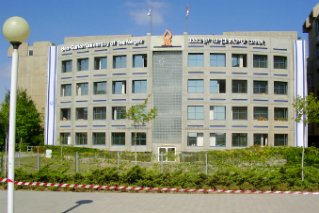 Ben Gurion University. Photo CC by Dr. Avishai Tycher
Ben Gurion University. Photo CC by Dr. Avishai Tycher
Supreme Court grants ACRI appeal against Ben-Gurion University’s ban on distribution of leaflets on campus. Supreme Court President Grunis: a university is not a private entity that can decide whether it permits or forbids students to express themselves freely on campus.
During the brief hearing that took place today (April 25) in front of Supreme Court President Asher Grunis and Justices Yoram Danziger and Zvi Zylbertal, the court ruled that the university does not have the authority to prohibit students from distributing leaflets on campus. President Grunis exclaimed during the hearing that: “an academic institution entrusted with academic freedom ought to recognize freedom of expression.” The justices recommended the university withdraw its opposition to the appeal, which it then did.
The story began in 2010, when an activist from the group “Solidarity Against Fascism” requested permission from the university to hang up posters on campus and erect a booth to distribute leaflets, which included pictures of Prime Minister Benjamin Netanyahu and Foreign Minister Avigdor Lieberman with a large red X painted in the background. Despite the fact that similar leaflets were distributed on other university campuses, Ben-Gurion University decided to ban distribution of the leaflets on its campus. The reason given by the University was concern that the distribution of posters and flyers on campus may incite violence against public figures and could expose the university and its students to defamation claims.
On 12 July, 2011, ACRI petitioned the Beer-Sheva District Court on behalf of the students, seeking a ruling that the university had no authority to enact such a prohibition. The District Court rejected the students’ claim, ruling that the university belonged to a special legal class that is entitled to consider and balance public relations and economic risks and limit the freedom of expression of its students on campus according to this calculus. ACRI immediately launched an appeal against this decision.
The appeal to the Supreme Court argued that the original ruling allows the university administration to prevent free speech whenever there is concern that it is offensive or may lead to a libel suit – even if this is only a remote possibility. It substantially limited the students’ freedom of expression and subjected it to the nearly unlimited and arbitrary discretion of a university administrator.
Five minutes into the hearing, in which Attorney Dan Yakir represented ACRI, President Grunis made it clear to the university that it was in a tenuous legal position. The university retired briefly to consider their options before conceding the case before the court reached a final decision.
According to ACRI Attorney Avner Pinchuk: “a university is not entitled to disqualify the political messages of its students due to its content. A university fulfills an important social function. It is not just a degree factory. It should encourage open and public dialogue on controversial topics and not serve as a censor.”
Related Material
Click here for more more information on ACRI’s activities protecting freedom of expression in Israel.







